Australia to keep two domestic airlines even if Virgin Australia does not survive
Federal MPs are calling on the Morrison Government to rescue Virgin Australia from financial trouble, warning that thousands of jobs are at risk.
Companies
Don't miss out on the headlines from Companies. Followed categories will be added to My News.
Labor’s federal MPs from Victoria are demanding the Morrison Government rescue Virgin Australia, warning 3000 jobs are at risk.
The opposition’s “Team Victoria” wants the government to give Australia’s second major airline a line of credit or take an equity stake to keep it afloat.
“Virgin directly supports almost 3,000 Victorian workers and our state depends on the competition and increased flights Virgin provides,” the MPs said in a joint statement.
“If Victoria’s federal Liberal and National politicians do not step up and save Virgin, they are making an active decision to see one of our major airlines fail.”
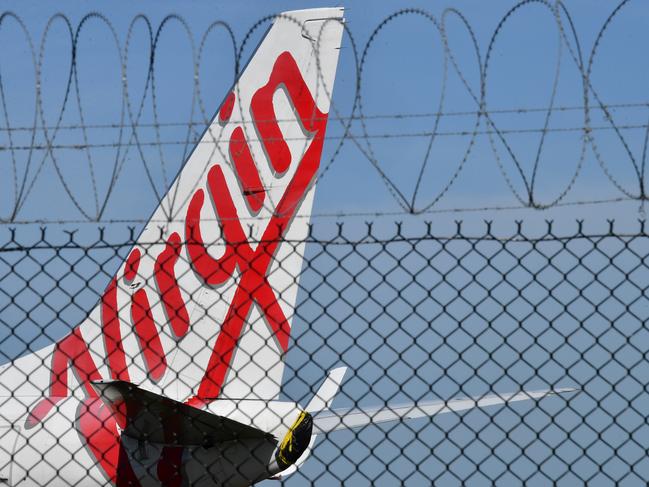
Australia will retain two domestic airlines even if Virgin goes under, with the Government determined to avoid a Qantas monopoly which could see the return of $1000 flights between Melbourne and Sydney.
News Corp understands the Government has established principles for navigating a potential Virgin collapse, which includes a requirement for two commercially-viable airlines to operate in Australia’s domestic market.
The airlines would service capital cities and main regional hubs and would begin increasing capacity after Australia emerged from the coronavirus lockdown in coming months.
But the Government will not provide the $1.4 billion cash bailout Virgin is asking for, believing the proposed three-year loan would never be repaid, and has declined to take an equity stake in the airline.
The Government also has no interest in ensuring there is a second Australian carrier operating on international routes, believing Qantas already faces appropriate competition from other global carriers.
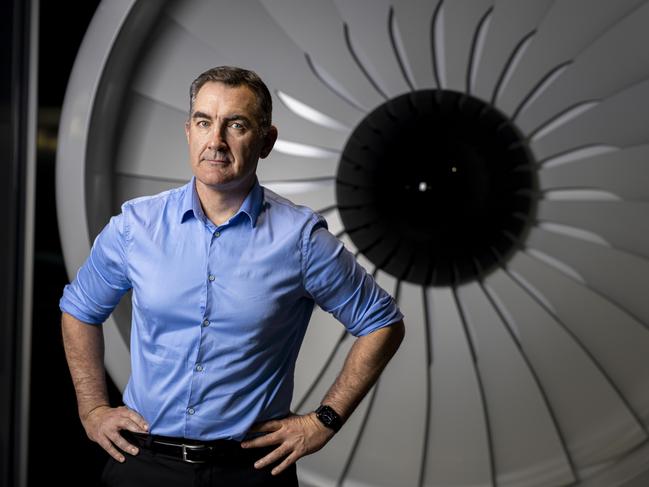
News Corp is aware of several private equity companies making inquiries about Virgin, which is drowning in $5 billion in debt.
And sources in the superannuation industry confirmed some of the cashed-up industry super funds were considering whether to invest in the airline, which employs 10,000 people – 8000 of them currently stood down due to the coronavirus crisis.
The Treasury is considering establishing a fund to provide assistance for distressed businesses which are deemed too important to Australia’s strategic interests to be allowed to fail.
However, it is not clear if Virgin could tap the fund in the future, with the Government insisting it would only offer assistance as a last resort, and on a sector-wide basis.
Four of Virgin Australia’s five largest shareholders - Etihad Airways, Singapore Airlines, and Chinese companies Nanshan and HNA, which each hold about 20 per cent of the company – have declined to bail it out. Sir Richard Branson’s Virgin group, which holds around 10 per cent, is wavering but is unlikely to put substantial capital into the company he founded in Brisbane in 2002.
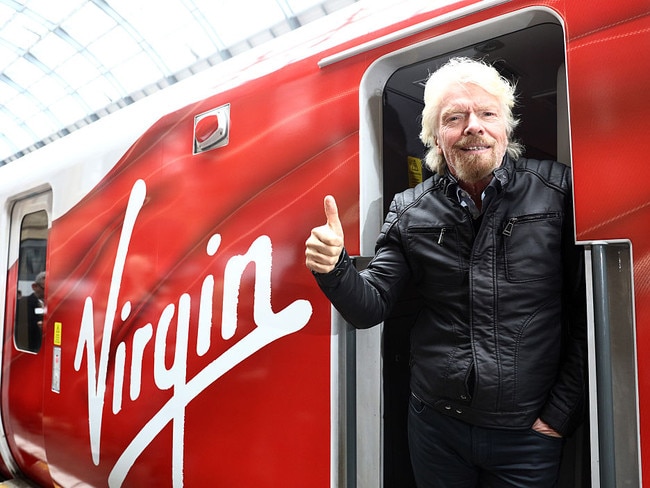
Any new Australian conglomerate which could emerge as Virgin’s new owners might be looked at more favourably in Canberra than the overseas owners, which include several billionaires including Sir Richard, and the owner of Nanshan Group, Song Zuowen, one of China’s richest men.
“We are not putting money into foreign billionaire’s pockets,’’ one Government source said.
With Virgin’s shares in a trading halt after falling to eight cents, the issue could come to a head in the next two weeks.
The Government has made clear it does not want a repeat of the situation in 2001 when Ansett collapsed and Qantas drove up prices.
Deputy Prime Minister and Aviation Minister Michael McCormack said he did not want Australia to have only one airline.
“I don’t want to see that situation,’’ he told News Corp.
“I want to see a viable, second airline operating in Australia. Every Australian wants competition.’’
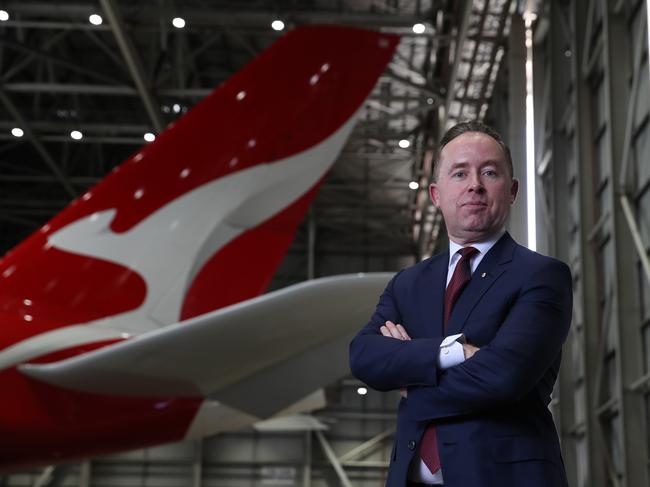
He reiterated his hope there would be a “market solution’’ for Virgin.
The airline in Australia has been haemorrhaging money, posting losses for the past seven years.
New CEO Paul Scurrah has changed the airline’s strategy, pivoting away from the full-service, direct competition model of his predecessor John Borghetti, and taking the airline closer to its founding position of being a no-frills low-cost carrier.
A senior source within the $3 trillion industry superannuation sector told News Corp the super funds could potentially invest in Virgin, but would require Government assistance to drive down or forgive the airline’s debts.
The source said the funds, either on their own or through their investment vehicle IFM, could potentially buy in now and add the company to a portfolio which already includes airports, ports and tollways.
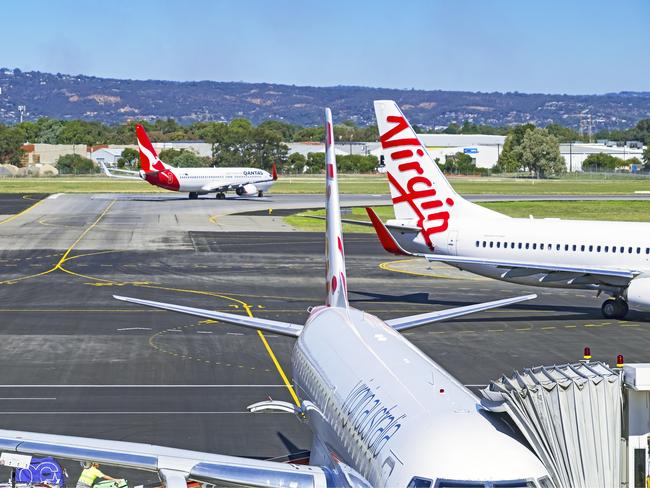
MORE NEWS
Virgin ‘wont get $1.4b bailout’
Your questions answered: What happens if Virgin collapses?
Pilot turned farmer: Virgin captain joins pleas to save airline
Chinese airlines in Virgin takeover talks as $200m rescue bid launched
Alternatively, the funds could get involved in a “trade sale’’ if the airline was sold off to private equity buyers. However, IFM chairman Greg Comet has downplayed suggestions of super fund involvement, telling The Australian such a move would be “high-risk’’ and that funds had a duty to invest their members’ money wisely.
Aviation consultant and former Qantas chief economist Tony Webber said he was aware of private sector interest in Virgin.
“I’ve been getting a lot of calls from investment banks sniffing around Virgin…a lot of different players are looking at that possibility,’’ he told News Corp.
“They’re looking at whether the shares are going cheap relative to the value of the organisation.’’
Dr Webber said fares would “undoubtedly’’ rise if Qantas ended up in a monopoly.
He said Virgin currently held about 35 per cent of the domestic market, and that Qantas would not take all of that capacity on, if Virgin was to go under.
That would also lead to price increases.
“Qantas will take on a bit of that 30 per cent, not all of it. Given it won’t take on all of it, fares will go up,’’ he said.
“Supply drops in the market, competition moves from a two-player market to a one-player market, the competition effect alone will increase fares from 10-15 per cent.’’
The Queensland Government has offered a $200m incentive to Virgin if it stays headquartered in Brisbane, but the money is nowhere near enough on its own to save the company.
Originally published as Australia to keep two domestic airlines even if Virgin Australia does not survive


